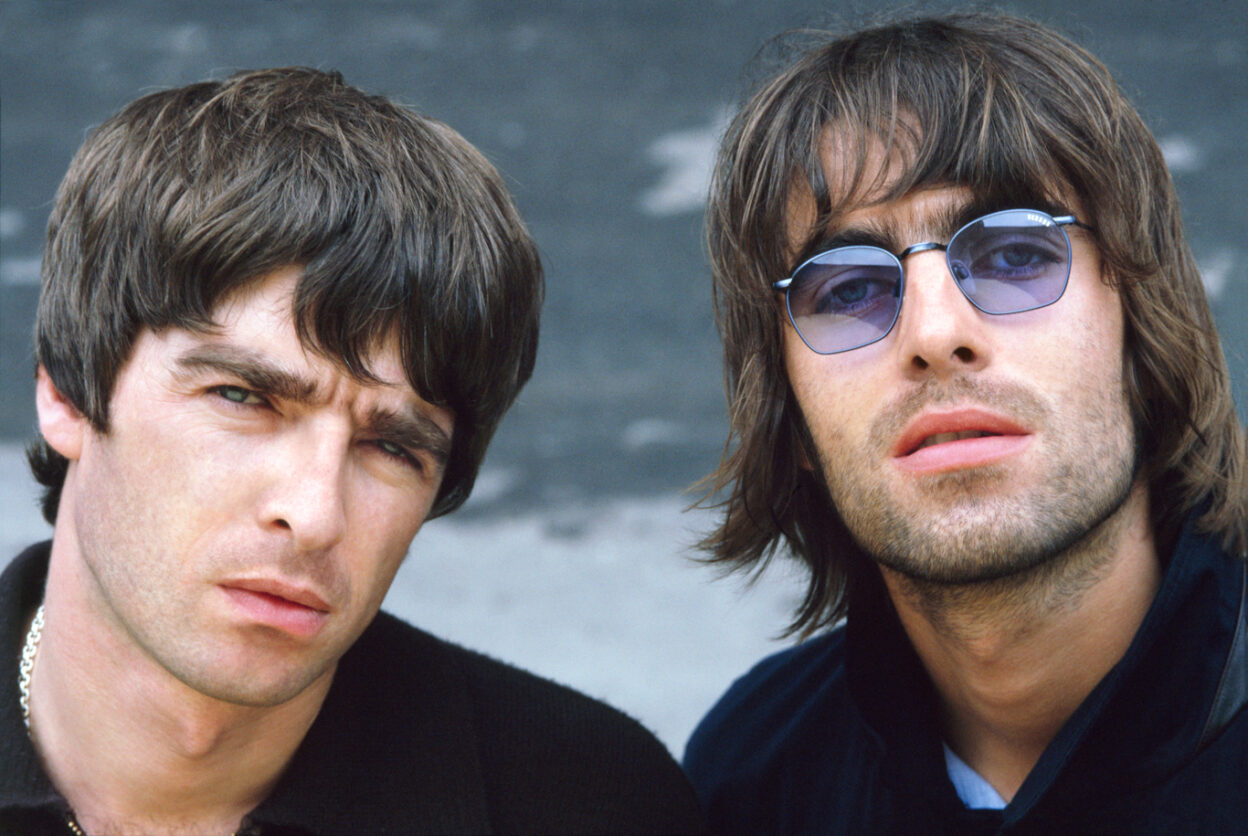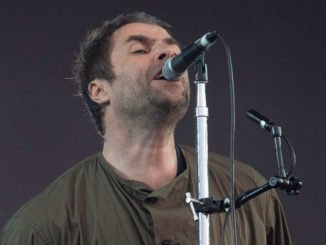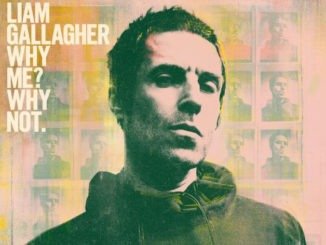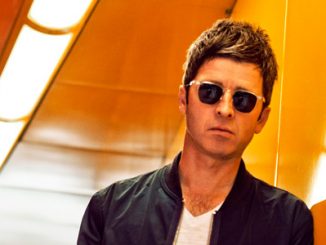Perhaps Britpop never truly disappeared—it simply evolved.
With Oasis returning to the spotlight, it’s no shock that Britpop is seeing a revival. The genre, which never fully faded from radio and playlists, continues to influence artists globally. Its hallmark blend of infectious melodies, vibrant optimism, and unmistakable British charm remains timeless.
Whether you’re revisiting the ’90s or exploring it for the first time, now is the ideal time to immerse yourself in this iconic sound.
Ahead of their highly-anticipated “Oasis Live ’25 Tour,” we analyze the effects the tour could bring towards reviving britpop culture among a new generation of fans.
Effect of Oasis’ Reunion
The Oasis reunion has sparked a wave of nostalgia, suggesting that the strongest lingering influence of the 1990s is its sentimental pull.
For those who lived through the Britpop era, next summer’s reunion concerts offer a chance to don their faded Adidas Gazelles and relive what feels like a simpler time. On the other hand, critics of the band may see the event as an exercise in “nostalgie de la boue”—a longing to revisit a messy, slightly disreputable chapter of the past, as described by French dramatist Émile Augier.
Class identity remains central to Oasis’ legacy and its connection with the public. While they never fully encapsulated the entire spectrum of working-class culture, Oasis celebrated a particular strain of modern British working-class life, rooted in collective spirit and the ability to find the extraordinary in the mundane.
Early hits like “Rock ’n’ Roll Star”, “Cigarettes & Alcohol,” “Don’t Look Back in Anger,” and “Champagne Supernova,” captured a communal sense of empowerment.
These songs drew from the jukebox optimism of glam rock, the raw emotion of punk, the euphoric chase of rave culture, and the melodic collectivism of the Beatles, embodying the best of post-60s British working-class pop music.
Influence on Britpop culture
Oasis’ influence on Britpop culture goes beyond just music—it’s the way they embodied a moment of unapologetic British identity and gave it a universal resonance. As Britpop surged in the early 90s, Oasis became its loudest voice, effortlessly weaving cultural pride and working-class spirit into tracks that defined a generation.
While Blur and Pulp brought their shades to the movement, Oasis set the tone with “Definitely Maybe” and What’s the Story Morning Glory?, delivering anthems like Wonderwall and Don’t Look Back in Anger that still echoes in arenas, playlists, and post-match celebrations today.
What stands out is their ability to make the ordinary feel extraordinary. Songs like Cigarettes & Alcohol turned the struggles and joys of everyday life into something people could sing back with defiance and joy—a blueprint for connecting with audiences that many bands try to replicate but rarely achieve. It’s a lot like the way football, another deeply rooted cultural phenomenon, finds beauty in the grit and stories of the every day, inspiring unity and pride.
Oasis’ unapologetic authenticity not only shaped Britpop but also paved the way for countless bands to embrace raw emotion and individuality. Their enduring legacy is a reminder of the power of staying true to your roots while reaching for greatness, a philosophy that resonates in music, sports, and even storytelling across generations.
Influence on 90s Britpop fashion resurgence
During the 90s Britpop era, Oasis not only defined a sound but also set a fashion trend that remains iconic. The Gallagher brothers, Liam and Noel, created a signature style inspired by the 1960s Northern Mod movement, blending it with a rebellious, everyday wear appeal. Their wardrobe staples—Kangol bucket hats, polo shirts, parkas, and rounded sunglasses—became synonymous with Britpop’s identity, with Liam leading the charge as a style icon.
Liam’s ability to make bold fashion statements, like wearing a cable-knit jumper at Knebworth or popularizing Clarks Wallabee shoes, set him apart. Adidas Gazelles and Levi 504 jeans became essential items, skyrocketing in popularity thanks to him. His unwavering love for outerwear—parkas, windbreakers, and even duffel coats—often appeared onstage, tightly zipped despite the heat. Berghaus and Stone Island jackets, along with vibrant experiments like the orange poncho parka he wore for the 2017 One Love Manchester concert, showcased his flair for pushing boundaries.
Noel, on the other hand, embraced a more refined mod-inspired aesthetic, favouring bomber jackets like the Levi Trucker and a consistent love for snorkel parkas. A follower of Paul Weller’s style, Noel maintained the iconic ‘peacock’ Mod haircut, complementing his sharp sartorial sense.
Decades later, the Gallaghers’ influence persists. Liam’s menswear brand, Pretty Green, is expected to see renewed interest as Britpop’s 60s-meets-90s style resurges. Levi’s has already marked the 30th anniversary of Definitely Maybe with commemorative T-shirts, and band merch, along with football jerseys, are likely to dominate wardrobes once again.
If you’ve been holding onto Wallabees, Kangol hats, and vintage Manchester City shirts, now is the perfect time to embrace that Britpop swagger. Channelling Liam’s confident strut in a hooded parka is more than a nod to the past—it’s a reminder of the enduring legacy Oasis brought to music and fashion.
Lasting impact on the Britpop movement
Oasis played a pivotal role in defining the Britpop movement for numerous reasons. They emerged as a powerful symbol of working-class pride and ambition, with their music capturing the struggles, aspirations, and raw attitudes of Britain’s working-class communities. The Gallagher brothers’ unapologetic swagger, shaped by their Manchester roots, deeply resonated with fans across the UK and beyond.
Their music celebrated British identity, infused with cultural references and influences from legendary bands like The Beatles and The Rolling Stones. This aligned perfectly with Britpop’s aim to reclaim British cultural prominence from the dominance of American grunge.
Commercially, Oasis stood head and shoulders above their peers, becoming the most successful band of the Britpop era. Their 1995 album, What’s the Story Morning Glory?, ranks among the best-selling albums in British history, featuring timeless hits like Wonderwall, Don’t Look Back in Anger, and Champagne Supernova. These tracks, alongside earlier anthems like Live Forever and Supersonic, shaped the quintessential Britpop sound and catapulted the movement to global fame.
Oasis’s impact transcended music, influencing fashion, attitudes, and even politics during the 1990s. They became emblematic of the ‘Cool Britannia’ era, a period of revitalized national pride in British arts. Songs like Wonderwall and Don’t Look Back in Anger became generational anthems, remaining ingrained in British rock culture and still sung passionately by fans today.
While many Britpop bands faded into obscurity, Oasis’s legacy endured. Their music continues to inspire generations of fans, both old and new, even after their dramatic split in 2009. With their highly anticipated 2024 reunion, it’s evident that their influence on Britpop and British culture remains as strong as ever.
Will Oasis’s reunion tour spark a Britpop revival?
With the Gallagher brothers back together, the buzz surrounding Britpop has reignited, and signs of a resurgence are already apparent.
Blur’s monumental 2023 Wembley Stadium show, attended by 90,000 fans, set the stage for a Britpop revival, and Oasis’s reunion has only intensified the wave. Streaming figures for their music have surged, pulling contemporaries like Blur and Pulp back into the spotlight as nostalgia sweeps through both lifelong fans and curious new listeners.
The highly anticipated “Oasis Live ’25 Tour” has fans brimming with excitement and clamoring for Oasis tickets. Kicking off on July 4, 2025, at Cardiff’s Principality Stadium and concluding on November 23, 2025, at São Paulo’s Estádio do Morumbi, the tour promises to be a spectacle.
With stops at iconic venues like Soldier Field in Chicago, MetLife Stadium in New Jersey, and multiple shows in Australia, the band will also take the stage at major UK locations, including Manchester’s Heaton Park and five nights at London’s Wembley Stadium. High demand for tickets has already led to additional dates being added to the schedule.
The tour’s announcement has reignited the public’s love for Oasis’ classics, with six songs re-entering the UK Top 20, including “Live Forever”, achieving its highest chart position yet at number 8. While some critics have dismissed the reunion as a nostalgic cash grab, fans are unwavering in their enthusiasm.
For the old generation, this tour is an opportunity to relive Oasis’s legendary live performances, while for the Gen Zs, it’s a chance to experience why the rock band is one of the greatest of all time.





Be the first to comment